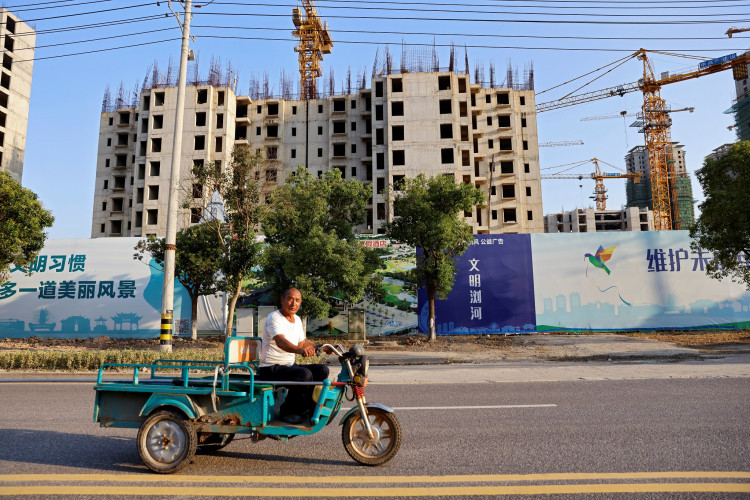China's consumer prices fell in February for the first time in over a year, reinforcing concerns about persistent deflationary pressures that could weigh on economic growth. The Consumer Price Index (CPI) dropped 0.7% from the previous year, according to data released Sunday by the National Bureau of Statistics (NBS). The decline exceeded analysts' expectations and reversed January's modest 0.5% increase.
The fall in prices was attributed in part to the early arrival of the Lunar New Year holiday, which boosted consumption in January but left February without its usual seasonal lift. The NBS estimated that without the timing effect, consumer prices would have risen by 0.1%, underscoring the broader weakness in domestic demand. The country's core CPI, which excludes volatile food and fuel prices, also declined 0.1%, marking its first contraction since January 2021.
Meanwhile, the Producer Price Index (PPI), a measure of wholesale inflation, fell 2.2% year-over-year in February. Factory-gate prices have now been contracting for 29 consecutive months, adding pressure on businesses to cut costs through job reductions and pricing discounts.
"Temporary seasonal distortions aside, both CPI and PPI inflation have been too low over the past two years, underscoring the supply and demand imbalance in the Chinese economy," economists at Goldman Sachs wrote in a research note Sunday.
China's economic slowdown has been compounded by weak consumer spending, a fragile job market, and a prolonged downturn in the property sector. International trade challenges have further complicated recovery efforts, with rising tensions between Beijing and Washington adding uncertainty to the country's export-driven industries.
"The uncertainty of the external environment is increasing, while we also face issues such as insufficient domestic demand and operational difficulties for some industries," said Zheng Shanjie, head of China's National Development and Reform Commission, at a press conference last week.
Beijing has set an ambitious 5% economic growth target for 2025, the same as last year, but its inflation target has been lowered to 2% from 3%, signaling official concern over deflationary risks. Despite emphasizing the need to stimulate consumption, the government refrained from introducing major stimulus measures during the recent National People's Congress, China's annual legislative session.
Wang Xiaoping, minister of human resources and social security, acknowledged the ongoing labor market challenges, stating that stabilizing and expanding employment would be "arduous" and remain "under pressure." Ni Hong, minister of housing and urban-rural development, said the government is "making every effort to stabilize and restore confidence in the real estate market."
A key component of Beijing's economic strategy this year includes a 4.4 trillion yuan ($608 billion) local government bond issuance, with a portion earmarked for purchasing completed but unsold housing projects. These properties will be converted into affordable housing, worker dormitories, and apartments for young people in an effort to address the glut of unsold real estate while supporting urban development.






